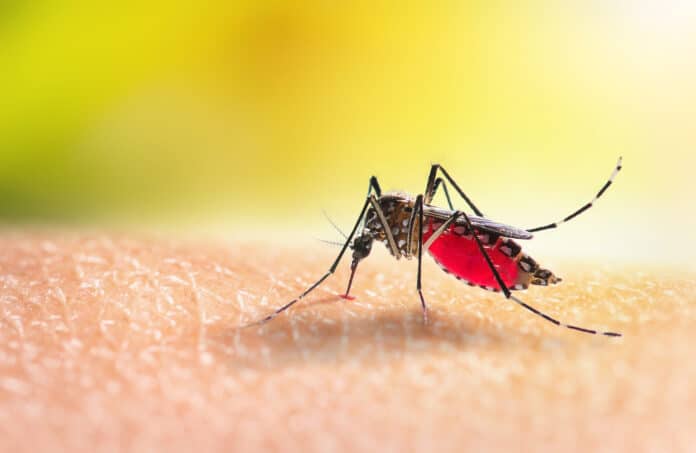A recent study has revealed a potential breakthrough in managing mosquito populations and the diseases they transmit, such as malaria. Researchers have found mosquito hearing could be a vulnerable point for control by utilizing insecticides.
Scientists have made a discovery at the University of Oldenburg that could lead to the creation of new insecticides to control dangerous diseases like malaria. Male mosquitoes need to hear female mosquitoes to reproduce. This finding might help develop new ways to stop diseases carried by mosquitoes, like malaria, dengue, and yellow fever.
In a new study published in a scientific journal called Nature Communications, the researchers looked closely at a pathway in mosquitoes that involves a molecule called octopamine. They showed that this molecule is essential for mosquitoes to hear and find their mating partners. This finding could be a fresh approach to controlling mosquitoes and their spreading diseases.
Male mosquitoes listen to the sound made by female mosquitoes in big groups that gather at sunset. Since these groups can be noisy, male mosquitoes have developed advanced ears to hear the quiet sound of female wings among many mosquitoes flying together.
However, researchers didn’t know much about how male mosquitoes enhance their ability to hear female wing sounds during these group gatherings.
Scientists studied the genes in the mosquito’s ears. They discovered that a receptor called octopamine becomes most active in male mosquitoes’ ears when they are in these groups.
The study found that octopamine does a lot to help male mosquitoes hear the females. It changes how the male ear detects different frequencies and how flexible it is, making it easier for them to listen to the female sound in the group. Octopamine also makes other mechanical changes in the ear to improve the detection of female mosquitoes.
The researchers found that insecticides could target the mosquito ear’s octopamine system. For mosquitoes, mating is critical, so finding ways to disrupt it helps control disease-spreading mosquito numbers.
Dr. Marta Andrés, one of the lead researchers, explained that “octopamine receptors are essential insecticide targets.” They want to create new molecules that disrupt mosquito mating, primarily for malaria mosquitoes.
Because mosquito hearing is linked to mating, stopping their ability to hear can stop them from reproducing. Understanding mosquito hearing could lead to creating ways to control mosquitoes better and reduce diseases they carry.
Professor Joerg Albert, another lead researcher, said “that mosquito hearing is very complex. Finding the octopamine pathway is just the beginning, and more studies could uncover more ways to control mosquitoes and the diseases they spread.”
Journal Reference:
- Georgiades, M., Alampounti, A., Somers, J., et al. Hearing of malaria mosquitoes is modulated by a beta-adrenergic-like octopamine receptor which serves as insecticide target. Nature Communication. DOI: 10.1038/s41467-023-40029-y.
